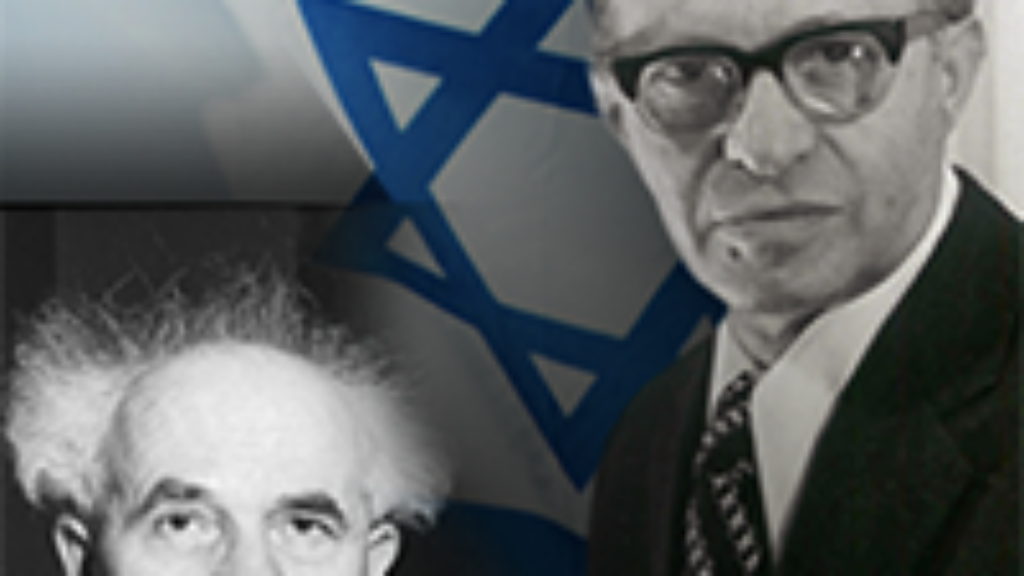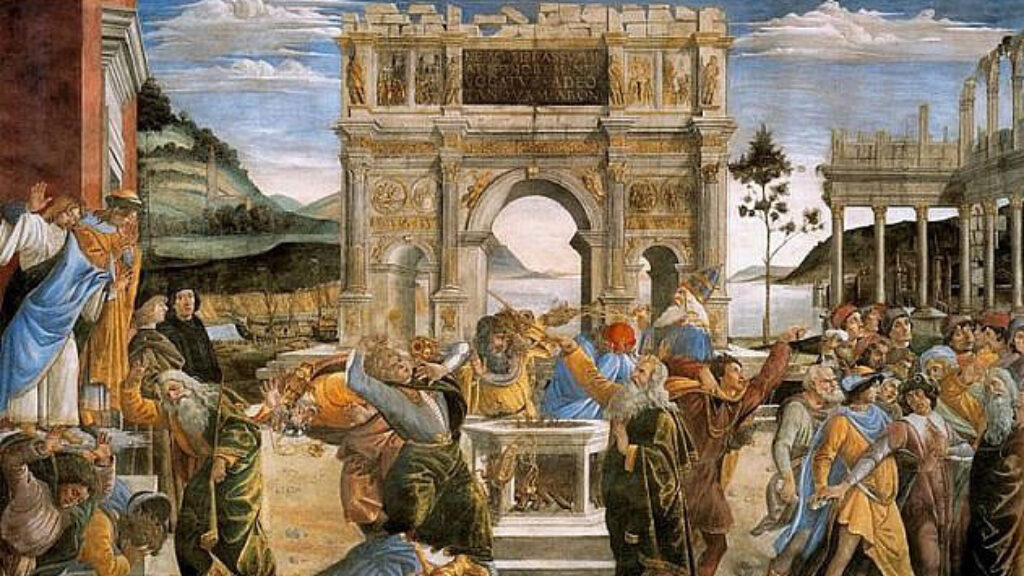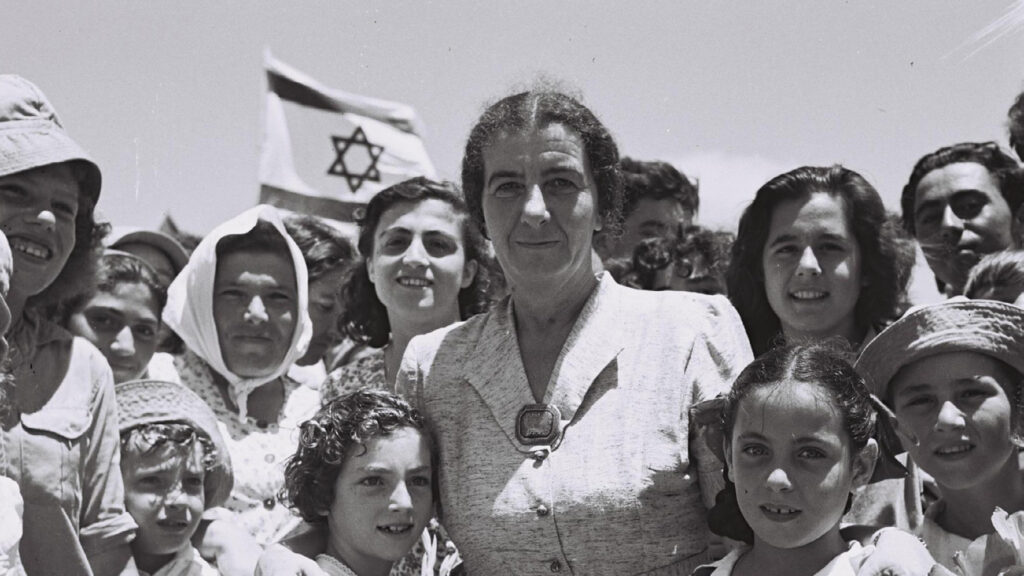Five Pillars and the Link of Generations: A Different Mission to Israel in a Time of Chaos and Despair
BY CLAIRE AMBINDER KANNER
God created the heavens and the earth, and there was darkness and there was light…and we could choose.
So we journeyed to see the echoes of those who chose darkness, blinded by hatred, clothed in a cult of death; then we dwelled among those who chose light, with kindness, resilience, and faith, reminding us of the world that clings to life, hope, and the pursuit of happiness for all.
These are my memories of the worlds of darkness and light, which I encountered on the Intergenerational Tikvah Mission to Israel during the summer of 2024.
We arrived.
So much stillness, like time just stopped. Lives blasted away. Death and destruction frozen in time.
Burnt to a crisp, every car belonged to a human being…yet the demonic beasts left no remains, chiseling with their hatred all living cells into melted clumps of death.
How is this even possible?
Bullet holes everywhere, from the front to the back, they were making sure they didn’t miss, making sure that every last Jewish soul they saw was annihilated.
Even ambulances were attacked, vehicles created to save lives.
Blown-up car, burnt car, melted car, bullet-ridden car, Hamas terrorist pickup truck…
These were my first impressions, if you can even call what I felt an “impression,” upon arriving at the Tkuma car cemetery in the Gaza envelope.
This is where many of the vehicles desecrated at the hands of Hamas were stored by the Israel Defense Forces (IDF), to clear the Route 232 highway for military use. However, eight months following the brutal massacre of October 7, this “storage” area had become a graveyard and memorial for those whose souls and unidentifiable remains were forever etched into the ashes of these cars.
As I walked along the dusty desert floor, disturbed by the horror in front of my eyes, I asked myself, “Why?” Why preserve and display these terrible, tangible echoes of what they did to us on that wretched day? Why bother to show a white Hamas pickup truck, like the ones I had seen too many times in videos on my phone of terrorists driving to kidnap and murder innocent Israelis? Why not destroy it? Why continually remind ourselves of this?
Then, at our next stop, a flicker of hope lit up our journey as we began to hear the stories of a reunified Am Israel. I began to understand what being Jewish and being Israeli really means today.
Random people just came to that spot with home-cooked food to give to those injured on October 7, and it quickly turned into a huge meeting point for soldiers to relax, to eat, to feel comforted and at home.
Being there for each other no matter what because we know we are all we have…it’s the junction of hope for what the future should be…of brotherhood…of love…of sacrifice. These soldiers are coming here for a few hours or days, until they have to go back into the strip of nightmares…not knowing if they will come back alive again.
I met a soldier there and spoke to him. He told me he had three kids, one was just bar mitzvah age. He smiled as he talked to me, but his face was empty. Blank stare. I could see it in his eyes, the pain, the fatigue.
I jotted down these thoughts after visiting the Shuva Brothers Junction. The rest stop was started by three brothers, Dror, Kobi, and Eliran Trabelsi, on October 7. Today, it has blossomed into the Shuva Achim, which translates to “Return of the Brothers,” a second home for soldiers coming in and out of Gaza. The operation is entirely based on donations and volunteers, giving love, a good meal, and basic items to any soldier who needs it—and many sorely do.
What struck me the most during my time at the Shuva Brothers was what the soldier I mentioned earlier did at the end of our short conversation. He grabbed a pair of olive colored camouflage tzitzit, perfectly matching his combat uniform. Out of the many things he could have taken from the supply shelves, he chose to grab a religious garment, one that serves as a physical reminder of the commandments in the Torah. A tzitzit is not a gun, or a helmet, or a vest. It cannot tangibly do much to help if a soldier is, God forbid, in a dangerous situation. This soldier also probably had many things on his mind, whether it be his family or his looming obligations in the army. Yet, he took the time out of his “break” to honor a tradition dating back thousands of years. While on the battlefield, facing the darkness of the present, he felt the need to wear the memories of the past on his uniform. Here was a man, reminding himself of God’s commandments, of our heritage, and acting upon them even in the middle of fighting a war, with millions of other responsibilities. Why, out of everything he could have made time for, was he making sure he honored this commandment? Why remember?
Being at the site of the Nova Festival massacre was personally one of the hardest moments of our day in the Gaza envelope. I envisioned the party before 6:30 in the morning: beautiful people coming together to dance for peace. I felt uncomfortable walking over the desert ground, one that almost seemed sacred and holy. My sneakers were treading dust that had witnessed pure evil. Dust that carried the memories of those who were murdered, mutilated, kidnapped, traumatized, innocent…Images of the horrifying scenes that I had seen on the news flooded my mind. Faces and names all around me. Pictures and poppies for those whose lives were ripped away. Memorials for angels who were taken too soon.
Suddenly, a group of eighteen year olds in fatigues caught my eye. They were part of an IDF unit that had taken the time out of their day to come to the site of the massacre. October 7 was one of the greatest and most shameful intelligence and military failures in the history of the state; yet these soldiers were showing up to the place of the attacks, facing the truth of what happened—no matter how devastating and evil—and asking themselves what they must do to ensure it will never happen again. Their presence is a promise of “never again,” to both those who were not saved and those who survived and continue to live on.
The Tzahal soldiers were saying “this happened” just as we, Jewish people all over the world, have been echoing their words, their thoughts, their grief…not to victimize ourselves, but because we are trying to understand, desperately searching for a formula, a plan, a strategy to prevent a rerun.
Dr. Naya Lekht, a mentor and teacher of mine on the Arab-Israeli conflict, once introduced me to the concept of the “Five-Legged Table,” created by Avraham Infeld. This metaphor depicts the five pillars that uphold a strong Jewish identity: family, memory, Mount Sinai, the Land of Israel, and Hebrew. Infeld’s thesis is that when we fulfill these “legs” supporting the table of Jewishness, we become united with purpose.
From the very first day of the trip, I began to think of Infeld’s five-legged table, from the places we went to the people we met, and the values we chose to live by as we traveled home to our land in a time of great pain, but also of hope and miracles.
I began this piece by pulling from formative moments of our day in the Gaza envelope that kept coming back to the pillar of memory. Infeld explains this “leg” by saying, “You can’t begin anything Jewish, you can’t build anything Jewish, you can’t do anything Jewish without calling on memory…how do you take the individual Jew, open his mind and help that person link their personal memory to the collective memory of the Jewish people?”
The power of Am Israel is our ability to take the tragedies we have faced, not necessarily personally, and turn them into lessons for the future. We are resilient, we acknowledge that we make mistakes, but we grow, we improve, we live. We are not defined by our “victimhood.”
Memory guides us, comforts us, strengthens us, and keeps us afloat on our journey as Jews in a world in which storms of anti-Semitism too often try to sink us to extinction. Memory is our compass; it is the precious treasure that keeps our hope and our faith alive in spite of…everything. We fortify our memory when we visit soldiers and memorial sites to pay respects to the victims of the October 7 massacre; when we honor biblical traditions that have been passed down for thousands of years; when we listen to, study for, and join political and strategic movements and trips like Tikvah’s mission, where every discussion, activity, and destination is tied not only to our past memory but also to the ones we are creating today.
The second pillar that sustains the Jewish people and that illuminated this summer’s Tikvah mission to Israel is family. In the Torah, we are not just described as Jews or Hebrews, but as “Bnei Yisrael,” or “Children of Israel.” Now more than ever, I, and a majority of Jewish people all over the world, understand how this concept connects to the very core of our being. The tragedy of the kidnapping of our hostages on October 7 has burnt into our souls one critical truth: that we are one nation, one family. Once strangers living thousands of miles away, we came to know the hostages as our brothers and sisters. Their names, their faces, their relatives and friends, and their stories will forever be ingrained in our minds and hearts. We share in their families’ pain and grief. We long for their return, for their freedom, and we cry out in desperate pain every day that passes by when thinking about their empty chairs at their families’ tables. We hurt for them, we shed tears for them, we pray for them. They have become a piece of our soul.
Are there other nations whose people have continued to feel so deeply connected to each other and their ancestors across such distance for thousands of years? Why do we feel such a powerful, unbreakable attachment to each other? Where does this eternal bond come from? My answer would be collective memory: from the verses in our holy books, from our moral values and our continuous efforts to leave the world better than how we found it, to the shared traditions that tie us back to our homeland, and the countless stories of exile and persecution passed down from generation to generation, seared in our thoughts as lessons for the decisions we make in our time.
A man who embodied the pillar of family, one who was mentioned throughout the entire trip, like a guiding voice, was Menachem Begin. On the fourth day of the mission, we visited the Begin Center in Jerusalem in order to learn about the life and values of one of our greatest leaders. One lesson from his life that touched me was his insistence on unity, how we must never forget that we are all one big family. Ashkenazi, Sephardi, Mizrahi…it does not matter how much we differ and disagree…our enemies like Hamas want us all dead because we are Jews. However, when we come together, united in brotherhood, love, compassion, tolerance, respect, and understanding, our differences become the strength and power that will help us to defeat our foes and continue thriving as a nation when those who hate us today, just as those who tried to annihilate us in the past, will become a wretched footnote in history.
Menachem Begin made many decisions with the Jewish pillar of family in mind, such as the events surrounding the Altalena ship in 1948, when Begin refused to shoot back at the Palmach army even though he knew Ben Gurion wanted him gone. Begin fought so that all Jews could understand the importance of standing strong together in the face of those who wish to divide us. Even through his death, Begin managed to convey the message that we are all brothers and sisters, as he chose to be buried in a “simple Jewish funeral” on the Mount of Olives with his fellow Irgun members and not in Har Herzl with the other Prime Ministers.
We live in a moment in which we are all being tested, and where the pillar of family could not be more significant. The legacy of Menachem Begin must live on through us as we navigate these agonizing times. Unity is the only way to move forward towards achieving long-lasting peace for Am Yisrael, our people, and our family.
We encountered many Jewish leaders from the past as well as the present during the mission, and one who really touched me and who is currently changing the world for Jewish young adults outside of Israel is Fleur Hassan-Nahoum. Just like Begin, she too understands the sacred relationship between memory and family, especially in today’s world, where the echoes of the past could not be more searing. Fleur decided to create a program for Jews to receive their undergraduate education in Israel so that they would not have to be surrounded by the persecution they often face in the Diaspora. I have a deep admiration for the leadership, the risk-taking, and the innovation behind what she has put together. She is creating a beautiful solution to the vicious hatred of our foes—one that is built from the collective memories of the shared past that forever bind us.
Family was also at the very core of the 2024 Tikvah inaugural mission, as it was one of the first of its kind to host an intergenerational trip to Israel post-October 7. Mothers and daughters, fathers and sons, aunts and nieces, grandparents and grandchildren all journeyed together to bear witness.
Experiencing Israeli society in a time of war with my aunt Yvonne, who is like a second mother to me, brought me so much joy. Being able to have meaningful and raw conversations with her, from the deep sadness and horror I felt while in the South, to dissecting the difficult and pressing information we received each day, to just celebrating the fact that we were there, grateful to have been given a chance to go back to our home in a time of uncertainty, was a truly transcendent experience. My aunt shared her wisdom with me, but we also learned and understood together. We created new memories that I will forever cherish, and that have inspired me to keep discovering, asking questions, and fighting for our people in Israel, throughout the Diaspora, and in my own communities.
I absorbed many historical, political, strategic, and religious lessons during this trip. I witnessed with my own eyes the continuation of the miracle that is Israel through the lens of a grieving, yet resilient, intelligent, and determined country. I have never been prouder to call myself a Jew, which comes with responsibility. Family, memory, Mount Sinai, the Land of Israel, and Hebrew. Five foundations that make us who we are.
Through my observations on the mission, I realized how interconnected the first two legs are. Without collective and personal memory, we cannot understand the importance of the remaining four pillars. Yet, it is through family that memory stays alive. When we bridge the gap of the generations, and come together to learn, just as Tikvah has done this past summer, we win. Not necessarily just in physical war, but in the game of life. Our enemies want us to disappear, but that will never happen because we choose to live. We fight for our existence on the battlefield and at home. Parents must make sure their children are strong, courageous Jews who know where they come from and who are proud of the legacy they inherit. Maybe this intergenerational mission can be the start of a new kind of Israel experience, one that connects all generations, fulfilling every pillar that sustains our Jewish nation and strengthens each part of our identity.
May our table of Jewishness always be sturdy, so that we can ensure the survival of our nation for generations to come.
Suggested Reading

Israel at 75: A Nation Built Upon Sacrifice
On the 75th anniversary of the establishment of the State of Israel, it's important to reflect and appreciate both the Jewish people's historical and religious connections to the land, and the work and sacrifice that made the dream a reality.

Korahite Judicial Philosophy
BY JACOB SHAYEFAR Korah makes an interesting point. As the Midrash relates, Korah began his assault on the authority of Moses with a halakhic argument. He asserts that in any…

Remaining an Or L’Goyim in a Post-October 7 World
BY GILA GRAUER October 7 was a day that will never be forgotten, not by Israelis nor by Jews all over the world, who all united to mourn the tragic…

The Sacrifice
BY NAOMI RUTTENBERG Deep within evil lies a thought worn of timeIt eagerly accepts a grant of evilThe sacrifice?You know itA scapegoat lit on fire subject to a rhymePoetry cursed…